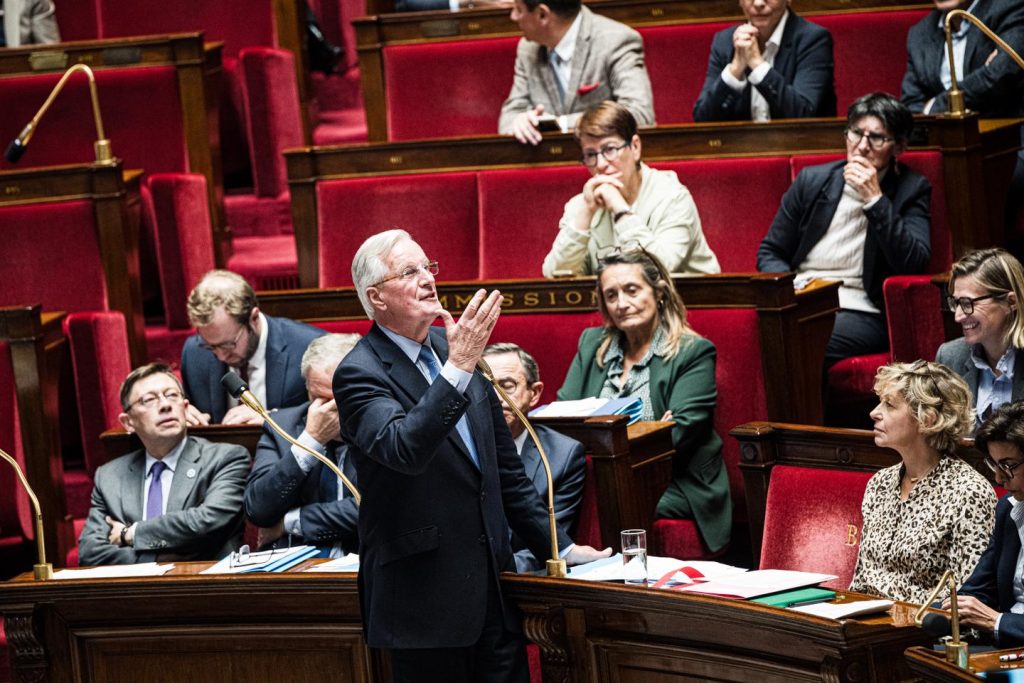Michel Barnier, the Prime Minister, is facing difficulties with his budget for 2025, which was presented to parliament with a ten-day delay and includes 60 billion euros in savings to improve public finances, despite not having a majority in the National Assembly. In order to pass his budget and social security financing bills, discussions will resume on November 4th, Barnier wants to allow for democratic and parliamentary debate by delaying the use of Article 49.3 of the Constitution, which allows a text to be adopted without a vote. This approach is seen as a way to show a break from hyper-presidentialization.
However, many members of parliament are unhappy with the situation. After weeks of discussions without a majority in the Assembly, all groups now have reasons not to vote for a budget that they themselves have contributed to amending. The debate has been characterized by a lack of coherence, with amendments being voted on with different alliances. This has led to frustration among members of parliament, with some feeling that a budget should not be reduced to a series of amendments voted on individually.
The New Popular Front’s mobilization in the Assembly has resulted in the adoption of around 40 billion euros in taxes and duties in the first part of the budget. The Minister of Public Accounts, Laurent Saint-Martin, has criticized this “fiscal overdose” resulting from the measures adopted by NFP with the complicity of the National Rally. Many of these proposals are expected to be removed during the parliamentary discussions, as they may be legally questionable, according to the general rapporteur of the budget.
Charles Sitzensthul, a member of parliament, describes the situation as a “game of fools,” where the fiscal delirium of the NFP serves to divert attention from the significant initial tax increase implemented by the government. This risky game could have consequences for the government and other groups, as those who do not vote for the confidence motion may face political costs due to the impact of the budget measures on various electorates. The political analyst Benjamin Morel points out that the government and opposition groups are facing a delicate situation due to the potential backlash from the budget decisions.
Overall, the challenges faced by Michel Barnier and his government in passing the 2025 budget highlight the complexities of parliamentary processes and the delicate balance of power in a fragmented legislative landscape. The use of delaying tactics and attempts to engage in democratic debate are met with frustration from various parliamentary groups, leading to a situation where the budget process is characterized by discord and lack of coherence. The political implications of these decisions are significant, as the outcome of the budget vote could have repercussions for all parties involved and may impact future political alliances.


